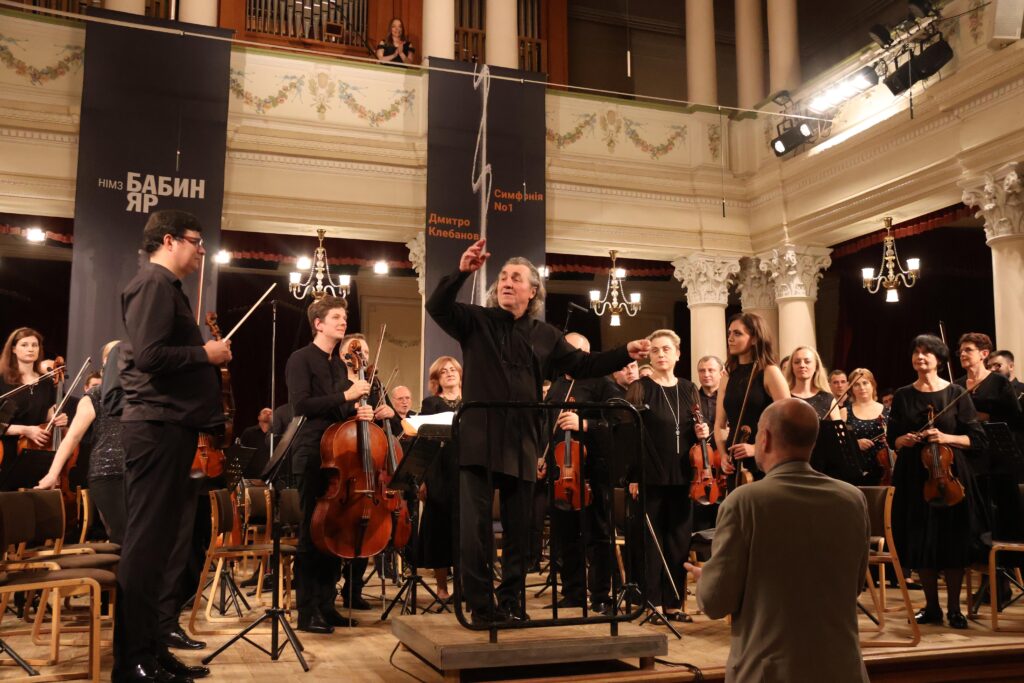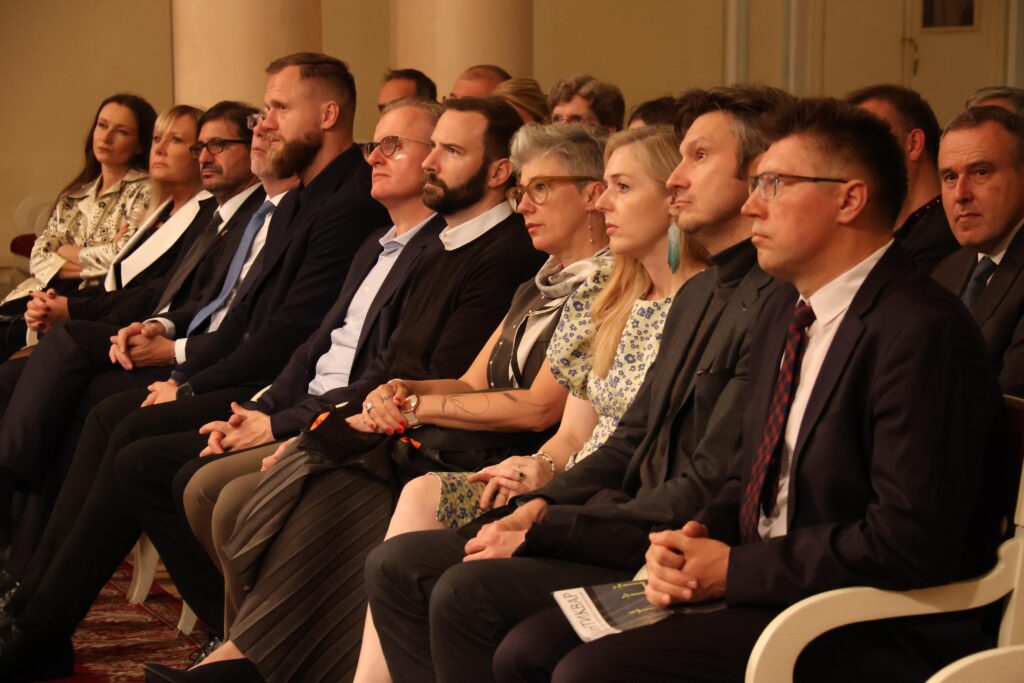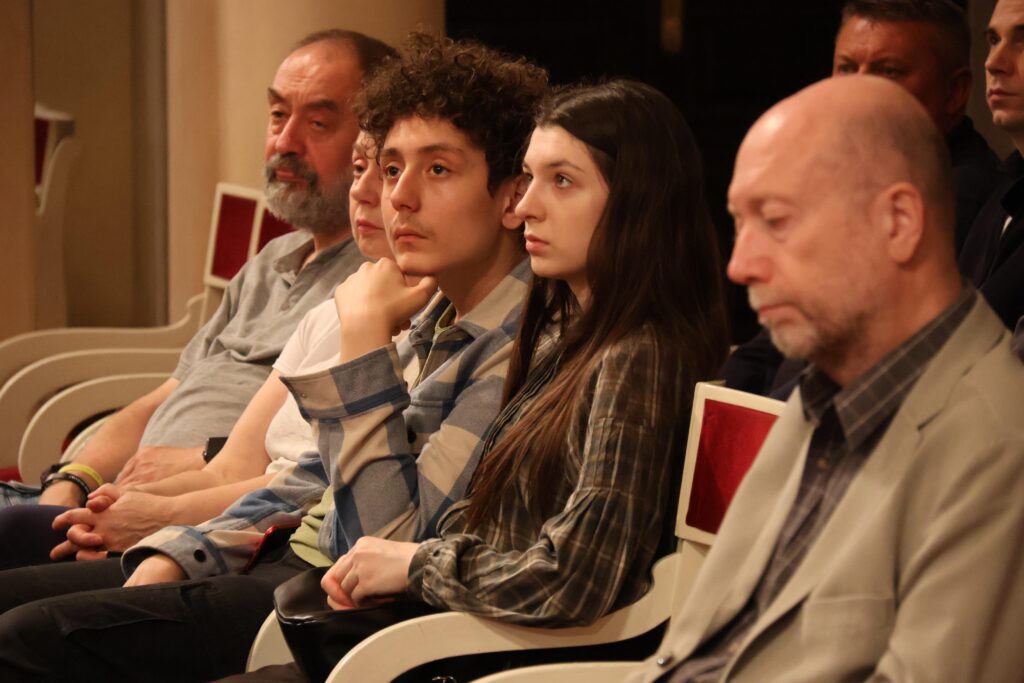The memorial concert took place on 29 September, the Day of Remembrance of the Babyn Yar tragedy, at the National Philharmonic of Ukraine. The National Honoured Academic Symphony Orchestra of Ukraine under the direction of Vladimir Sirenko performed Symphony No. 1 ‘In Memory of the Babyn Yar Martyrs’ by Dmitry Klebanov.

The event was attended by diplomatic representatives of Canada, Germany, the United Kingdom, Lithuania, Estonia, Belgium, Romania, the Netherlands, the Czech Republic, Argentina, and representatives of the Jewish community.

The work will be presented to the general public for the first time in an updated edition; it has an extraordinary fate and is a testament to the Soviet ‘Genocide of Memory.’ Rosa Tapanova, the head of the Babyn Yar National Museum, said in her opening speech: ‘Art has always been a bridge that helped us to feel the pain of the past. When Dmytro Klebanov wrote a symphony in 1945 dedicated to the martyrs of Babyn Yar, he wanted to convey the depth of this tragedy to the audience. The path that this work has travelled from the author to us, its listeners today, is evidence of another genocide - the Genocide of Memory. That is why it is so important for us to restore what has been created, to let the works of Ukrainian composers sound.’
Dmytro Klebanov, a Ukrainian composer of Jewish descent from Kharkiv, completed the symphony in 1945 and dedicated it to the memory of the Babyn Yar martyrs. It is the first symphony about the Holocaust in the world.
During the composer's lifetime, the work was performed only once, in 1947, in Kharkiv. After that, the symphony was immediately banned, scheduled performances were cancelled, and the composer was accused of formalism. The work was never performed during the composer's lifetime.
With the thaw in the USSR, it became possible to return to the theme of the memory of the victims of Babyn Yar. In the late 1980s, the symphony was performed in Kyiv by the Ukrainian conductor Ihor Blazhkov with the State Symphony Orchestra, and in 2011, the work was performed in Kharkiv by the Kharkiv University of Arts. Both performances were imperfect, as the composer's manuscript was unavailable, and the musicians used a copy of the score with numerous errors.
Only in 2024, thanks to the joint efforts of the Babyn Yar National Historical and Cultural Museum and representatives of the music community, did they manage to obtain a photocopy of the original and a more accurate handwritten copy. These materials showed that after the premiere, the composer made important adjustments to the score.
A huge amount of work on editing the work was done with the support of the Kharkiv National University of Arts, where Dmytro Klebanov taught for many years. The Ukrainian composer Oleksandr Shchetinsky took on the editing and preparation of the musical material for performance.
The original score of the Symphony showed that we are looking at a masterpiece that is almost unknown to anyone, without which the history of Ukrainian music looks incomplete. The symphony is rich in folklore of two peoples - Jewish and Ukrainian. It is also symbolic that this work was composed in Kharkiv.
The restoration of the work is part of the work of the Babyn Yar National Historical and Cultural Museum in the cultural and artistic field of preserving the living memory of the Holocaust. We are convinced that the world's stages should hear this work and will work on it as part of cultural diplomacy.

